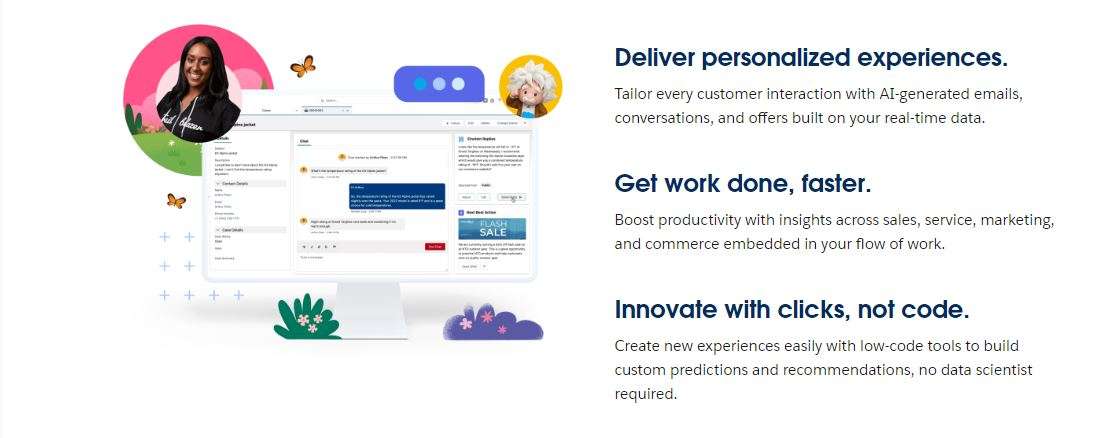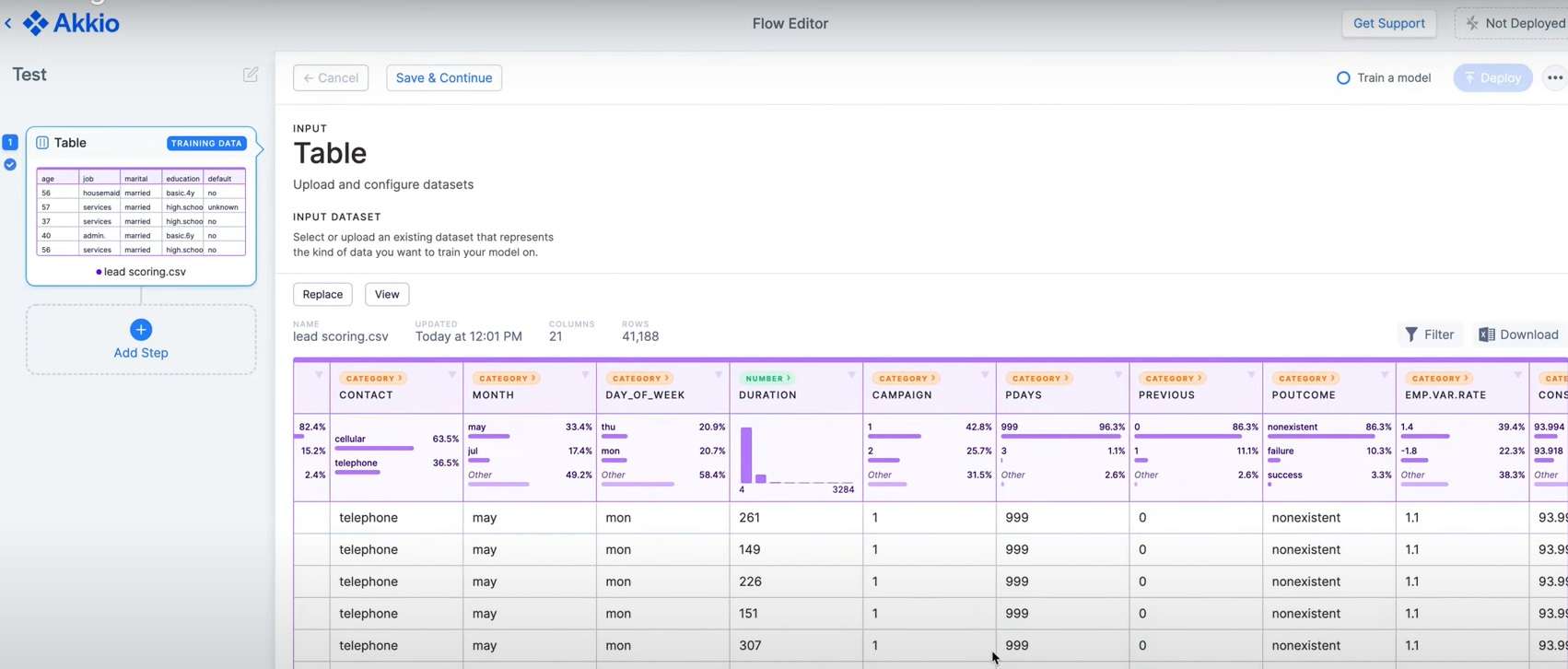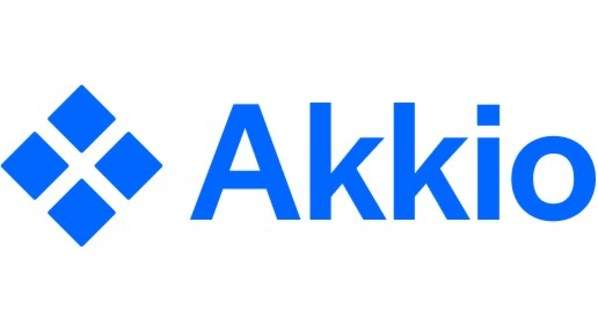From Chatbots to Analytics: Best AI tools to grow a Business
In this article we will be diving into the benefits of integrating artificial intelligence in companies and the best AI Tools to grow a business.
Artificial intelligence (AI) has come a long way since its inception, and it has become an essential element for businesses across the globe. Startups, in particular, stand to benefit significantly from AI tools. They can help automate repetitive tasks, provide valuable insights, and improve the customer journey. The best AI tools to grow a business can help startups scale faster, improve their bottom line, and stay ahead of the competition.
In this ultimate guide, we’ll explore the top AI tools for startups that every business should consider using. From chatbots to analytics, we’ll show you how to leverage the power of AI tools to grow your business, enhance customer experiences, and make data-driven decisions. Whether you’re just starting out or looking to take your startup to the next level, this guide offers valuable insights and practical tips for leveraging AI to achieve your goals. So, let’s dive in!
Benefits of Using AI Tools to grow a business
AI tools provide a wide range of benefits for startups and large businesses alike. They can help automate tasks, improve customer experiences, and provide valuable insights. Here are some of the benefits of using AI tools in your startup:
Automating Repetitive Tasks
One of the most significant benefits of AI tools is the ability to automate repetitive tasks. This can save startups a lot of time and money. For example, AI tools can be used to automate data entry, customer service, and marketing tasks. By automating these tasks, startups can focus on more important things like product development, customer acquisition, and revenue growth.
Improving Customer Experiences
AI tools can also help improve customer experiences. For example, chatbots can be used to provide 24/7 customer support, which can improve customer satisfaction and loyalty. AI tools can also be used to personalize marketing campaigns, which can increase customer engagement and conversions.
Providing Valuable Insights
AI tools can analyze large amounts of data and provide valuable insights that can help startups make data-driven decisions. For example, analytics tools can be used to analyze customer behavior, which can help startups optimize their marketing campaigns and product offerings.
Choosing the best AI tools for business
Choosing the right AI tools for your startup can be a daunting task. There are many different types of AI tools, and each one has its own strengths and weaknesses. Here are some tips for choosing the right AI tools for your startup:
Define Your Goals
Before choosing AI tools, startups should define their goals. What do you want to achieve with those tools? Do you want to automate tasks, improve customer experiences, or gain valuable insights? Defining your goals will help you choose the best AI tools for your startup.
Consider Your Budget
AI tools can be expensive, and startups should consider their budget before investing in them. Businesses should choose AI tools that fit their budget and provide a good return on investment.
Pro tip: Pricing and budgets are vital factors of any business, but often we should analyze the tools to grow a business from the perspective of value provided.
Research AI Tools
There are many different types of AI tools, and entrepreneurs should research them before investing in them. When doing an in depth analysis, business owners should consider the features, pricing, and reviews of AI tools from trusted sources. Moreover, understanding the functionality and how your business can benefit from the features will facilitate the integration of the technology in your business processes, which will potentially lead to better ROI.
Implementing AI Tools in Your Startup
After choosing the right AI tools, startups need to implement them effectively. Here are some tips for implementing AI tools in your startup:
Train Your Team
AI tools require proper training to be effective and to deliver the maximum results. Businesses should train their teams on how to use AI tools effectively.
There is a great amount of fear for job replacement and people becoming obsolete in the face of Artificial Intelligence. However, humans should embrace and adapt the usage of this revolutionary technology in order to stay ahead of the curve and increase their productivity and stay relevant.
Start Small
Companies should start small when implementing AI tools. They should test AI tools on a small scale before implementing them across the entire organization. You will see the result, process and overall if they are the right AI tool for the business goals that you set.
Monitor Results
Companies should monitor the results of AI tools to ensure they are effective. They should analyze the data and make sure to pick the best AI tools for business, based on their size, goals and company culture.
AI tools to grow a business are one of the fastest developing technology nieche in 2023, so there is plenty to choose from. Don’t settle for the average.
AI Chatbots for Customer Service

AI chatbots can provide 24/7 customer support and improve customer experiences. They can answer frequently asked questions, provide product recommendations, and resolve customer issues. Here are some tips for using AI chatbots for customer service:
Personalize Conversations
AI chatbots should be programmed to personalize conversations. They should use the customer’s name and provide personalized recommendations for a better retention and customer satisfaction. These revolutionary chatbots that provide seamless customer support, as well as data collection could be one of the top AI tools for startups in the age of customer satisfaction.
Integrate with Other Tools
AI chatbots should be integrated with other tools like CRM software and analytics tools. This can provide valuable data and insights about customer behavior and support business leaders to make informed decisions.
Test and Monitor
AI chatbots should be tested and monitored regularly to ensure they are effective. Startups should analyze chatbot conversations and make changes if necessary. There are smart chatbots solutions that improve their answers and performance over time.
Tech Pilot recommended Chatbots:
Trusted by over 1 million businesses to power over 1 billion customer conversations.
Click-through rates are 130% higher than the industry average.
Easy to use and integrates with popular tools such as Google Sheets, Shopify, and HubSpot.
Seamless Integration with Facebook / Instagram.
The pricing is based on the number of contacts
Limited Integrations outside the scope of Social media
Analytics are not as insightful as other AI Chatbots
- Offers access to Instagram Direct Messages, Facebook Messenger, WhatsApp, and SMS text messaging.
- Allows users to build automation quickly using a visual drag n’ drop interface.
- Enables businesses to combine SMS and email to capture phone numbers or emails in automation.
- Offers unlimited custom flows, growth tools, keywords, team member seats, tags, custom fields, and advanced segments in its Pro plan.
- Provides analytics and insights tools in its Pro plan.
The NLP capabilities are very accurate and can understand complex customer inquiries.
The ability to customize the chatbot's responses allows businesses to provide a more personalized customer experience.
Seamless integration with Salesforce's other CRM tools makes it easy to manage customer interactions.
Multi-channel support ensures that customers can get assistance no matter where they are.
Advanced analytics provide insights into customer behavior and help improve the chatbot's performance over time.
Setting up the chatbot can be time-consuming, and may require help from Salesforce's technical support team.
The pricing for the AI Chatbot feature can be expensive, especially for smaller businesses.
While the NLP capabilities are impressive, the chatbot may still struggle with certain complex inquiries.
 Salesforce Einstein
Salesforce Einstein
- Natural Language Processing (NLP) capabilities for accurate interpretation of customer inquiries.
- Ability to customize the chatbot’s responses to specific customer needs.
- Seamless integration with Salesforce’s other customer relationship management (CRM) tools.
- Multi-channel support, including web, mobile, and social media platforms.
- Advanced analytics to track performance and improve the chatbot’s effectiveness.
- SalesForce Einstein is the Artificial Intelligence that is supporting a large suite of services and tools designed for Business Operations
AI Analytics Tools for Business Insights
H2O.ai provides an open-source machine learning platform that is easy to use and supports a variety of programming languages.
The platform is highly scalable and can handle large data sets and complex models.
H2O.ai offers a wide range of pre-built algorithms and tools for data cleaning, preparation, and feature engineering.
The platform has a strong focus on interpretability, allowing users to understand how models make predictions and identify potential biases.
H2O.ai has a large and active community of users and developers, providing access to a wealth of resources and support.
While the open-source version of H2O.ai is free, some of the more advanced features and tools require a paid subscription, which can be expensive for smaller businesses and individuals.
While the platform is designed to be user-friendly, it still requires a significant amount of technical expertise to use effectively.
H2O.ai may not be the best choice for organizations that require highly customized machine learning solutions, as the platform is primarily focused on pre-built algorithms and tools.
While the interpretability features are a strong point, they may not be sufficient for some applications, particularly in highly regulated industries where transparency and accountability are critical.
 h20.ai experiment view
h20.ai experiment view
Main H2o.ai benefits:
- High accuracy: H2O.ai’s machine learning models have been shown to achieve high levels of accuracy, making it a powerful tool for data analysis and prediction.
- Easy to use: The H2O.ai platform offers a user-friendly interface and a variety of pre-built machine learning algorithms, making it easy for data scientists and developers to get started.
- Scalability: H2O.ai is designed to handle large datasets and can be scaled up to meet the needs of enterprise-level organizations.
- Open source: H2O.ai is open source software, meaning it is free to use and can be customized to meet the specific needs of individual users and organizations.
- Integration: H2O.ai integrates with a variety of programming languages and tools, making it a versatile solution for data analysis and machine learning tasks.
- Automated machine learning: H2O.ai offers automated machine learning capabilities, allowing users to quickly build and deploy machine learning models without the need for extensive coding or data science expertise.
Akkio's machine learning capabilities allow for advanced data analysis and automation, potentially saving time and effort.
The platform offers integrations with various third-party tools and services, allowing for more flexibility and customization.
Akkio provides templates and pre-built models for common use cases, making it more accessible to users without extensive machine learning experience.
The platform allows for easy deployment and scaling of machine learning models.
While Akkio offers pre-built models, creating custom models may require significant machine learning expertise.
The platform may not offer as many advanced features or options as other machine learning platforms.
Akkio may not be as well-known or established as other players in the machine learning market.
 Akkio Intuitive Data Upload
Akkio Intuitive Data Upload
Main Akkio benefits:
- Streamlined and automated data analysis: Akkio makes it easy to analyze large datasets and extract valuable insights quickly, without the need for extensive manual analysis.
- Customizable AI models: The platform allows users to create their own custom AI models using a drag-and-drop interface, without requiring extensive programming knowledge.
- Powerful automation capabilities: With Akkio, users can automate a wide range of data-related tasks, including data cleaning, transformation, and analysis, reducing the time and resources required for these tasks.
- Improved accuracy and efficiency: By leveraging AI and machine learning, Akkio can provide more accurate insights and predictions, while also reducing the risk of errors that can occur with manual analysis.
- Flexible integration options: Akkio can be integrated with a wide range of data sources and tools, including CRMs, databases, and cloud storage services, making it easy to use in a variety of settings.
AI analytics tools can analyze large amounts of data and provide valuable insights. They can help startups make data-driven decisions and improve their bottom line. Here are some tips for using AI analytics tools for business insights:
Define Metrics
Businesses should define the metrics they want to analyze before using AI analytics tools. This can help them focus on the most important data and sort out the fluff.
Analyze Customer Behavior
AI analytics tools can analyze customer behavior to provide valuable insights. Companies can use this data to optimize their marketing campaigns and improve customer experiences.
There are powerful software that support sorting out huge amount of data and provide in depth analytics as well as accurate predictions of conversion. Leveraging this sort of tool, will allow you to save resources and focus on the leads that are likely to convert. One of the most powerful, yet easy to use data analytics tool is Akkio.
Test and Monitor
AI analytics tools should be tested and monitored regularly to ensure they are effective. Startups should analyze the data and make changes if necessary.
AI Project Management Tools for Productivity

AI project management tools can help startups improve productivity and efficiency. They can automate tasks, provide valuable insights, and improve collaboration. Here are some tips for using AI project management tools for productivity:
Automate Tasks
AI project management tools can automate repetitive tasks, which can save businesses a lot of time and money. For example, they can automate data entry and project scheduling.
Provide Valuable Insights
AI project management tools can provide valuable insights about project performance. Companies can use this data to optimize their project management processes and improve productivity.
Improve Collaboration
AI project management tools can improve collaboration between team members. They can provide real-time updates and facilitate communication between team members. This is vital especially for companies that are engaging with large scale projects or modern start ups with a fully remote working culture.
AI Cybersecurity Tools for Data Protection
AI cybersecurity tools can help startups protect their data from cyber threats. They can detect and prevent cyber attacks, identify vulnerabilities, and provide real-time threat intelligence. Here are some tips for using AI cybersecurity tools for data protection:
Identify Vulnerabilities
AI cybersecurity tools can identify vulnerabilities in your startup’s systems and applications. Startups can use this data to improve their cybersecurity measures and protect their data from cyber threats.
Provide Real-Time Threat Intelligence
AI cybersecurity tools can provide real-time threat intelligence, which can help startups detect and prevent cyber attacks.
Test and Monitor
AI cybersecurity tools should be tested and monitored regularly to ensure they are effective. Startups should analyze the data and make changes if necessary.
AI Financial Tools for Budgeting and Forecasting
AI financial tools can help companies manage their finances more effectively. They can automate budgeting and forecasting, provide valuable insights, and improve financial decision-making. Here are some tips for using AI financial tools for budgeting and forecasting:
Automate Budgeting and Forecasting
AI financial tools can automate budgeting and forecasting, which can save startups a lot of time and money. They can provide real-time updates and facilitate collaboration between team members.
Provide Valuable Insights
AI financial tools can provide valuable insights about financial performance. Startups can use this data to optimize their financial processes and improve decision-making.
Improve Decision-Making
AI financial tools can improve decision-making by providing accurate and reliable financial data. Startups can use this data to make informed decisions about investments, expenses, and revenue.
Future of AI for Startups, growing businesses and large enterprises
AI is rapidly evolving, and its impact on entrepreneurship will only continue to grow. In the future, we can expect AI to be integrated into every aspect of business, from customer service to financial management. Here are some trends to watch for in the future of AI in startups:
Increased Automation
As AI tools become more advanced, we can expect to see increased automation. This will save time and money and improve efficiency, which is the goal of every business owner and manager. Learn more about Automation in marketing, as well as the growth of smart algorithms in social media.
Personalized Customer Experiences
AI tools will continue to be used to personalize customer experiences. Companies will be able to provide even better customized recommendations and offers based on customer behavior. The access to machine learning and creation of intelligent smart bots has been democratized, therefore entrepreneurs can easier implement smart algorithms in their business processes. You can learn more about how you can program your own chatbot with OpenAI.
Improved Decision-Making
AI tools will continue to provide valuable insights that will improve decision-making in companies. Startups to large companies will be able to make data-driven decisions that will improve their bottom line and business processes. Best AI tools to grow your business through in depth analysis without the need to hire expensive data scientists are H20.AI and Akki
Embrace the tools to grow a business and stay ahead of the curve
AI tools provide a wide range of benefits for startups. They can automate tasks, improve customer experiences, and provide valuable insights. Startups should choose the right AI tools for their goals and budget, and implement them effectively. Whether it’s chatbots for customer service, analytics tools for business insights, or financial tools for budgeting and forecasting, AI tools can help startups grow faster and stay ahead of the competition. The future of AI in startups is bright, and startups that embrace AI will have a significant advantage over those that don’t. So, start exploring AI tools to grow a business today and take your entrepreneurial endeavor to the next level!







